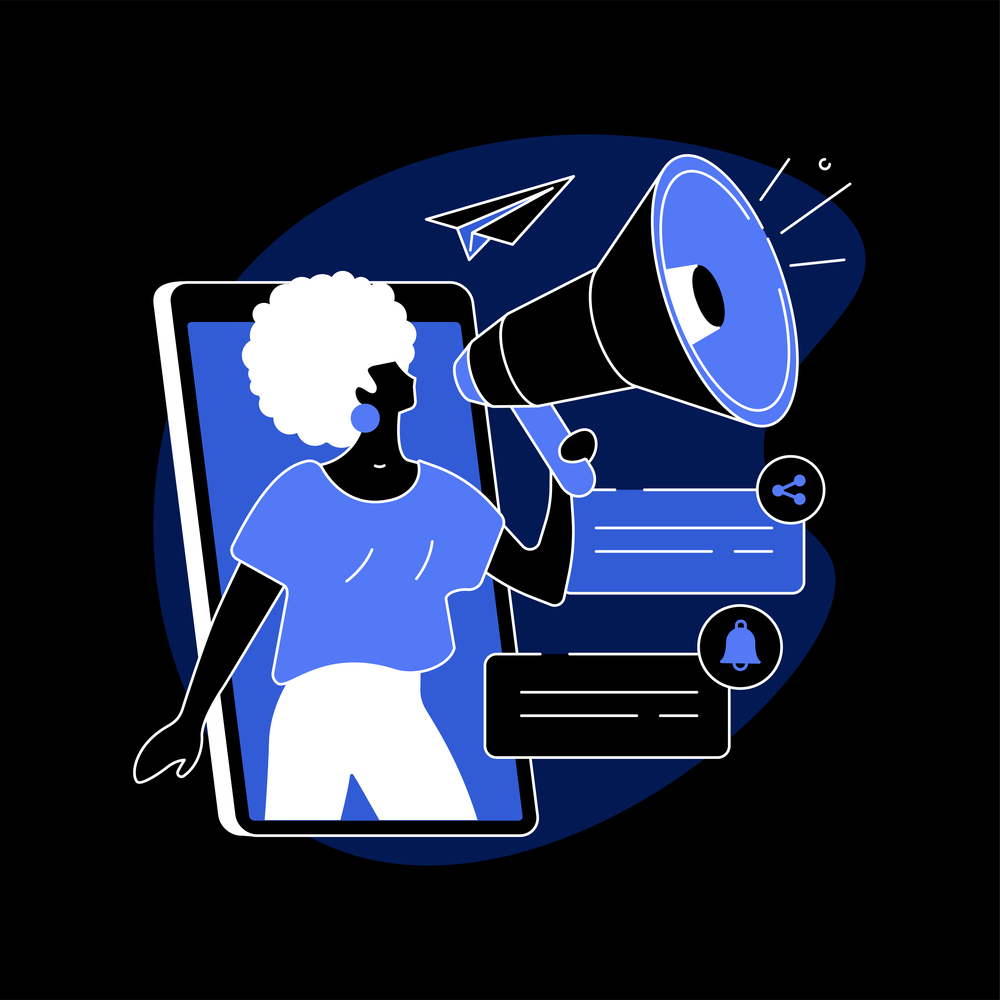In the world of psychiatry, it is unfortunately common for some patients to express discontent. There are multiple legitimate reasons for this dissatisfaction – mistreatment, abuse of power, misdiagnosis, lack of proper consent, and coerced treatments, to name a few.
A recent study by Canadian researchers Matthew S. Johnston, Matthew D. Sanscartier, and Rhys Steckle shifts focus to the patients’ voices, capturing their candid experiences with psychiatrists via online reviews.
“Those whom society pits as ‘mad’ can get taken up as a separate class of ‘deviants’ because of how others view their behavior. Mental illness is still not often understood well in society but rather can be perceived and stigmatized as a dire weakness and difference, which creates a negative connotation associated with some types of behavior. For instance, racial discrimination can lead to more negative mental health outcomes,” the researchers write.
“Other people with more ‘invisible’ mental illnesses, meaning sicknesses that they can conceal from others because their behavioral differences are less obvious, become obligated to perform sanity and conform to institutional behaviors so they can adequately manage the stigma, professional expectations, and vulnerabilities some may perceive as a fault.”
 The researchers analyzed 5,090 English-language reviews of 468 practicing psychiatrists in Canada, posted on www.ratemds.com between 2007 and 2018. They sought to understand how patients talked about and potentially challenged their treatment. The study was confined to psychiatrists, with a suggestion for future research to include psychologists and other mental health professionals.
The researchers analyzed 5,090 English-language reviews of 468 practicing psychiatrists in Canada, posted on www.ratemds.com between 2007 and 2018. They sought to understand how patients talked about and potentially challenged their treatment. The study was confined to psychiatrists, with a suggestion for future research to include psychologists and other mental health professionals.
The researchers used a “post-anarchist” lens for their study, aiming to disrupt traditional power dynamics and uncover knowledge within the patient reviews that challenge conventional psychiatric narratives. Their work is rooted in an ethnographic or “netnographic” research methodology, which searches for themes in both cognition and emotion.
The study’s uniqueness lies in its focus on individual voices rather than macro criticisms of the psychiatric system. That said, they do state, “the targeted and individualist nature of our data still makes remarkable and clear links to the more macro critiques.” They further explain:
“This article is more concerned with the fact psychiatric experts have a tendency to construct service users as passive recipients of psychiatric care, perpetuating the assumption that people who suffer from serious mental illnesses are unable to comprehend their own sickness, recovery, and behavior and therefore engage psychiatric experts about their care.”
The authors identified four primary themes from their qualitative analysis, excluding assessing the quantitative 5-star rating system.
The View from the Couch: Counter-Analyses of the Doctor
First, unsurprisingly, some reviewers felt they were not given enough time or attention in their psychiatric consultations. Anecdotally, this is a common phenomenon, spawning its own jokes about psychiatrists rarely even looking at service users as they ask a series of prescribed questions from a survey.
One service user explains:
“As head of psychiatry… you’d think he’d give at least 10 minutes for a conversation to really gauge a person’s frame of mind…I stupidly agreed to electroconvulsive therapy. I say stupidly because he gave me no explanation about the risks or possible side effects…He never recommended talk therapy or stress management, nothing other than pills and ECT.”
As the authors note, in cases like these, there can be a de-emphasis on “learning from the service user’s expressed words and feelings.”
The same reviewer was dissatisfied with the psychiatrist’s arrival at a diagnosis with no explanation of the meaning of the diagnosis, much less the thought process that led to such a diagnosis.
A different reviewer, though likely in a similarly recognizable situation, felt that if they disagreed or ‘fought back’ with the psychiatrist’s recommendation, they risked jeopardizing their treatment or facing reprisal, given the inherent power imbalance and reliance on the psychiatrist for continued medication.
Asking the Wrong Questions: Tensions with Sexuality
A second theme concerned invasive questioning about sexuality. Although it is not unreasonable for psychiatrists to ask basic questions about sex when certain medications can affect libido, several reviewers found the conversation uncomfortable and beyond the scope of necessity.
One reviewer stated:
“He was overly fixated about my sex life and would ask me about it and want details, which really creeped me out…I was beaten and physically abused as a child, but not sexually, so his questions about my sex life were unwarranted….”
This accusation of being “overly fixated” on sexual history and the service user’s sex life—when seemingly irrelevant—appeared across multiple reviews.
Disturbingly, one psychiatrist refused to call a trans service user by their chosen name, claiming they were “not really transgender, just having an identity crisis as a result of BPD [Bipolar Disorder]… He diagnosed me with a ton of disorders I don’t have.”
Stigmatizing Doctors in the Face of Tension
The most emotionally charged reviews came from service users who felt that the psychiatrist’s over-reliance on medication was doing them harm and being too hasty to prescribe:
“Absolute lunatic. No idea where she got her psychiatry degree, but the fact that she’s a doctor and can prescribe medicine is very scary and worrisome. She prescribed me Zoloft after BARELY getting to know me or the core of my issues. Pill pushing psychopath with no empathy whatsoever. After being raped she told me I was dumb and shouldn’t have put myself in that situation. Please never bring your child to her.”
As the authors point out, this quick assessment and revolving-door mentality is common in mental health services. That is one point worth examining at a systemic level, as some well-meaning providers may struggle to keep up with the demand. However, as the authors rightly point out, victim-blaming is inexcusable and points to serious ethical issues.
There are Still Good Doctors Out There
Not all of the psychiatrist reviews were negative. Several reviewers praised their psychiatrist for “helping them overcome their mental health issues, heal their suffering, and in some cases, save their lives.”
A key issue here was a mutual willingness on the part of the service user and psychiatrist to cultivate a relationship of honest dialogue and compromise, as explained by one reviewer:
“As his patient, we have had some disagreements. I believe that people still view physicians of any discipline as infallible and not to be questioned. I do not…I was always honest with [Doctor] if I was uncomfortable or disagreed. We were able to discuss and compromise. For my therapy to be successful, I had to be willing to the work. It is not just meds. There are no ‘magic’ cures. I hold [Doctor] in the highest regard. He is one of the great ones!”
Another reviewer noted that “psychiatry is such an inexact science” and didn’t blame their psychiatrist for their imperfections, concluding with “but, as I say, he seems to be trying hard.”
A constantly recurring theme in this article, as the authors write, is that of autonomy. When people feel that their voice and perspective matter, they are more likely to rate the care highly. On the other side of things: “Yet when they feel powerless, betrayed, or abused, they tend to criticize their care.”
Although these statements may seem obvious, it is also evident that psychiatry continues to suffer from many of the problems discussed by reviewers throughout this analysis.
On a concluding note, the authors valorize this “digital space” where service users can engage in a form of politics that allows them to recoup some of their voice and to offer counter-narratives and resistance to the psychiatric establishment:
“By counter-analyzing doctors to feel like they have a say over their treatment/conditions, insisting doctors are asking the wrong questions to better control their identities, and attempting to informally expose their doctors’ ties to the pharmaceutical industries, service users refuse to simply accept the labels, diagnoses, and pathologies imposed on them.
A post-anarchist framework, a view in which ‘essential identities and fixed normative categories are destabilised’ allows us to view these textual gestures as subverting medical subject-positions via discourse external to the psychiatric apparatus.”
Addressing study limitations, the authors admit that “overt psychiatric resistance has only been preliminarily explored.” They are interested in how individuals “refuse to become subjectivized by psychiatric discourse and power.” More research is needed into these forms of resistance and pushing for counter-narratives against the establishment.
There is a plethora of research, both academic and personal, into the issues this paper addresses. From the harm of coercive, involuntary confinement/treatment and over-prescription of pharmacological drugs to the ongoing power imbalances in psychiatry recognized by the United Nations, the fight for equal treatment and, indeed, autonomy for service users is a long and arduous one.
****
Johnston, M. S., Sanscartier, M. D., & Steckle, R. (2023). Patient resistance to psychiatric discourse and power. Disability Studies Quarterly, 42(3-4). (Link)















Mainstream psychiatry thrives on “patients” surrendering their autonomy to its institutionally flawed beliefs and practices: derogatory “diagnoses”, abusive power dynamics/power imbalance, and intrusive, inappropriate questions. But “patients” who speak out online are finally reclaiming their autonomy — something mainstream psychiatry never bargained on having to deal with.
Report comment
Yes, the psychologic and psychiatric industries are now confessing to their stupidity or ignorance, in regards to the psych neurotoxins they force on innocent others. Which, of course, means the medically untrained psychologic industry, is just as guilty, as the big Pharma deluded psychiatric industry.
Report comment
I totally agree Someone else. The whole “mental health system” stinks to high heaven.
Report comment
I forgot to mention psychiatry’s smorgasbord of pharmaceutical poisons.
Report comment
It is common to say there is a stigma to mental illnesses. Not at all helpful, but indeed common.
Harold A Maio
Report comment
The term “mental illness” creates “stigma”.
Report comment
I am third generation bipolar, and while the stigma of that family curse has been difficult at the very least I’ve watched how the mental health system treated my elders and adapted my thinking based on their experiences. My grandfather was put on lithium while he had hypertension and weighed nearly 300 pounds – lithium is a salt that wrecks havoc on the heart, kidneys, and thyroid. He died of a heart attack within six months of his diagnosis/prescription. My mother worked hard to get off that same prescription and tried countless others – but never talk therapy. No doctor was interested in talking with her; only giving her different drugs to try. When it came to me I had to go through countless doctors to find one willing to talk with me instead of just drug me like a broken genetic freak. The one who finally did said, “Drugs are like crutches, but therapy is the rehab – if you want off those crutches, we’ll need to replace them with healthier coping skills.” Today I find it terrible that it took three generations of my family to find someone who brought up healthy lifestyle changes / coping strategies as a solution to what everyone told us was a genetic inevitability. I wonder how many “genetic” illnesses are simply the result of generational trauma from those who never learned how to help themselves – and as a result could never help their children.
Report comment
How many “genetic” illnesses are simply the result of generational trauma?
Well, in today’s DSM there’s at least 265, (not counting those pesky “modifiers”). But you can expect more after the next DSM “conference”.
And incidentally, psychiatry is the pseudoscientific manifestation of generational trauma.
Report comment